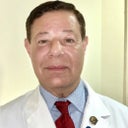Treating acne is a slow frustrating process for the acne sufferer, usually for two reasons. For one, all prescription acne treatments, whether topical or oral or a combination of both (including the Accutane) typically take two to four months of daily use to BEGIN to work. While this is a fact on the ground, it is admittedly a very difficult reality for acne sufferers to live with. And once their beneficial effects do indeed begin to kick in, acne treatment must be continued in order to realize their maximum benefits, a timeline that typically requires an additional two to four months. Another very troubling problem is postinflammatory erythema (PIE, i.e. flat red blotches that follow pimple clearing) and postinflammatory hyperpigmentation (PIH, or dark flat skin stains that follow the fading of the red blotches). Fading of these residual discolorations is usually spontaneous, but may take weeks to many months in some cases, and the more darkly pigmented a person is, the longer this frustrating stage can be. So patience and coverup makeup when appropriate will be needed during this relatively long process. Because they reduce all bumps and discolorations to two-dimensional skin stains, photos are not the best way to evaluate acne progress. The best way to determine whether you are progressing is (no matter what you see in the two-dimensional mirror) to close your eyes and run the backs of your fingers across your face. If it feels smooth you know that you have improved, and if it still feels lumpy and bumpy, you still have a ways to go. The major work of the home therapies is prevention of new acne breakouts and the job of the dermatologist with in-office treatments is to clean out the whiteheads and blackheads so they do not progress to new breakouts and to inject those that have alreadty broken out to get them own quickly before they lead to PIE and PIH and even worse to permanent scarring. And in the vast majority of cases, this can be accomplished without the need for strong systemic therapies, such as oral antibiotics and Accutane, that can make your whole body pay for only the sins of your face. So, the best advice is to consult with a board certified dermatologist asap. Best of luck and Happy New Year.


